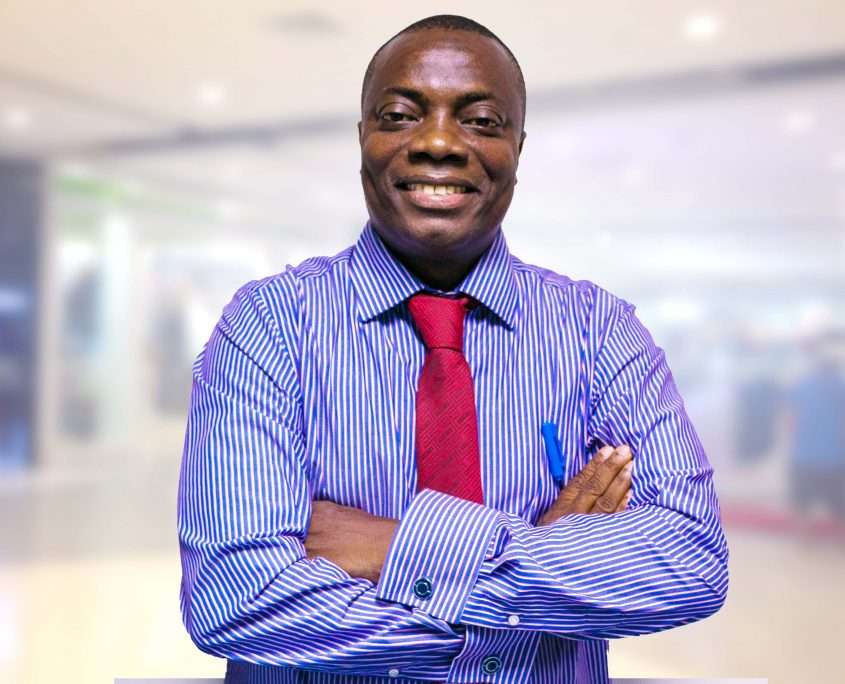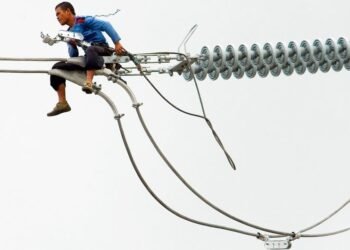As Ghana approaches its December 2024 general elections, new polling data from Global InfoAnalytics offers an enlightening overview of voter opinions, highlighting the obstacles candidates face in securing a win.
With the stakes high and campaign strategies ramped up, these findings illuminate critical elements that could shape the final election results.
In a recent analysis, the Executive Director of Global InfoAnalytics, Musa Dankwah delved into what the data suggests about Ghana’s current political climate and the areas where vulnerabilities exist.
“The poll shows that while 9% of voters say they are likely to change their mind about who they would vote for, 7% were neutral about the question and 84% said they are unlikely to change their voting intentions”.
Musa Dankwah, Executive Director for Global InfoAnalytics
This, he noted underscores a critical reality for political contenders, arguing that despite extensive campaign spending, only a small portion of the electorate is open to reconsidering their vote, indicating limited potential to attract new support.
Musa Dankwah pointed out that this 16% is the crucial battleground that could ultimately decide the election, adding that for campaign teams, efforts must now be concentrated on persuading this subset of voters while ensuring loyal supporters remain engaged.
He emphasized that the limited number of persuadable voters requires highly targeted approaches, focusing on convincing arguments and strategies to mobilize committed voters.
Firm Support for Leading Candidates
According to Musa Dankwah, the poll identifies strong differences in voter retention among the top candidates.
He disclosed that former President John Dramani Mahama and Vice President Dr. Mahamudu Bawumia (DMB) have the most steadfast supporter bases, with 93% of their voters saying they are unlikely to switch.
Here Musa Dankwah pointed out that just 3% of voters for each candidate may consider other options, while 4% are undecided. This data points to a stable core of support for Mahama and Bawumia that is largely unaffected by campaign shifts.
This deep loyalty provides an advantage for both Mahama and Bawumia, allowing them to direct resources toward undecided voters and ensuring high turnout among their base rather than needing to shore up wavering supporters.
However, it also implies that significant changes would likely come from voters of other candidates, putting pressure on those with weaker loyalty levels.
Challenges for AKK and NKB
Moreover, the Executive Director for Global InfoAnalytics added that the survey data suggests that Alan Kyerematen of the Movement for Change and Nana Kwame Bediako of the New Force face challenges with voter loyalty.
“For AKK, only 56% of voters say they are unlikely to change their mind while 10% say they are neutral but a whopping 31% are potential voters who could switch their votes before the elections. For NKB, those who are unlikely to change their mind represent 59% of the coalition, 10% are neutral and 31% are likely to change their mind”.
Musa Dankwah, Executive Director for Global InfoAnalytics
This level of uncertainty poses a threat to their voter base and increases the likelihood of support shifting to more secure candidates like former President Mahama or Vice President Dr Bawumia.
These figures signal an urgent need for both Alan Kyerematen and Nana Kwame Bediako to strengthen voter loyalty and address the factors contributing to voter uncertainty.
If not addressed, these vulnerabilities could lead to a loss of support and weaken their campaigns as election day approaches.

Runoff Implications
Musa Dankwah stressed the importance of these findings in the context of potential runoff scenarios and how Alan Kyerematen and Nana Kwame Bediako’s supporters might behave if that happens.
He argued that in such a case, their bases could be pivotal in determining the outcome, amplifying the importance of shoring up these vulnerable voter groups.
Both campaigns, he admonished must consider the possibility that their voters could migrate to either of the leading candidates in a runoff, which could dramatically reshape the election outcome.
The analyzes by the Executive Director for the Global InfoAnalytics poll sends a clear message to all candidates in this highly competitive race: while the majority of the electorate is firmly decided, there is a small, influential group still open to persuasion.
Musa Dankwah noted that the real significance of this data will be evident once the election results come in, suggesting the numbers should be kept for future reference.
In a race where Mahama and Bawumia have the advantage of a solid support base, Kyerematen and Nana Kwame Bediako are at a critical point where securing undecided voters could make all the difference.
Ultimately, as Musa Dankwah pointed out, the data is likely to prove decisive, with today’s voter sentiment potentially determining the future leadership of Ghana.
READ ALSO: ADB Hosts Forum to Boost Climate-Resilient Agriculture




















